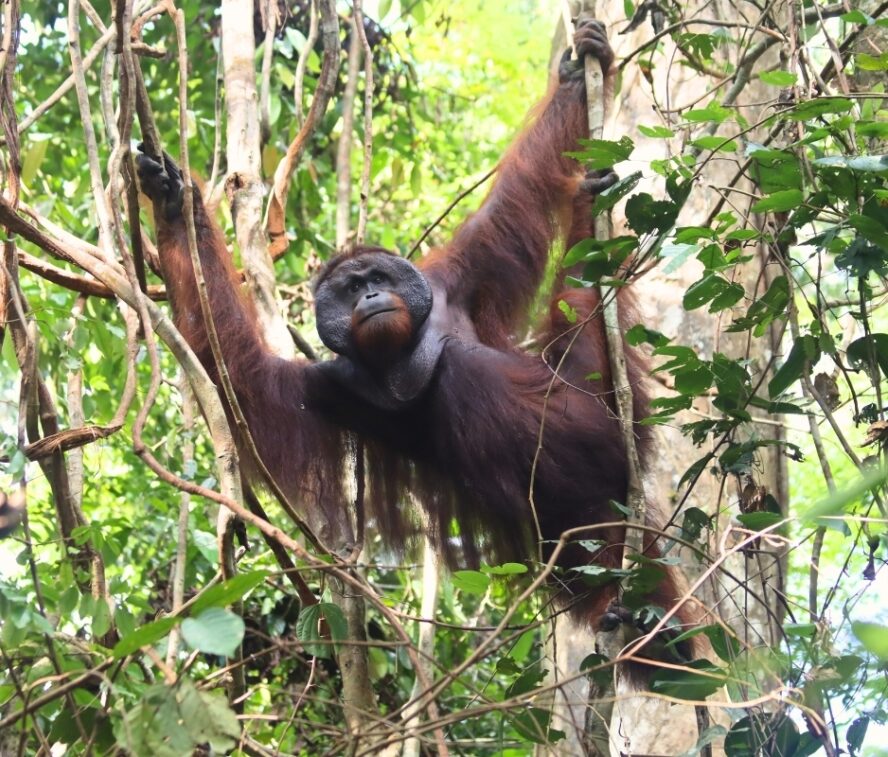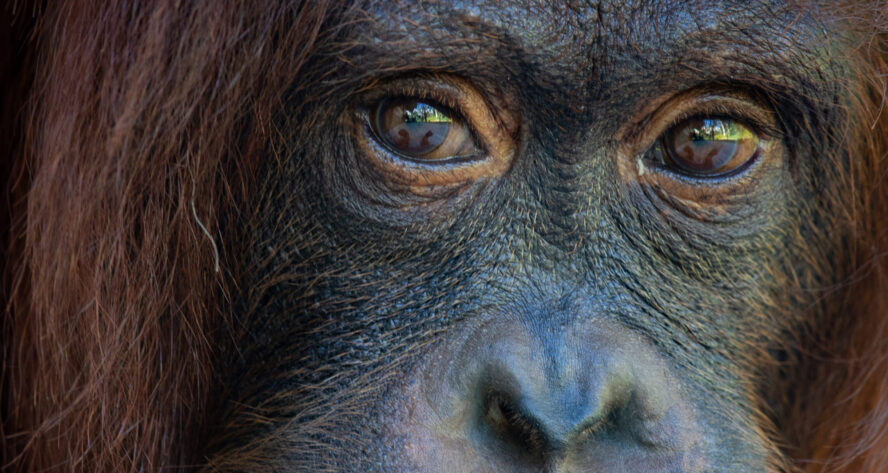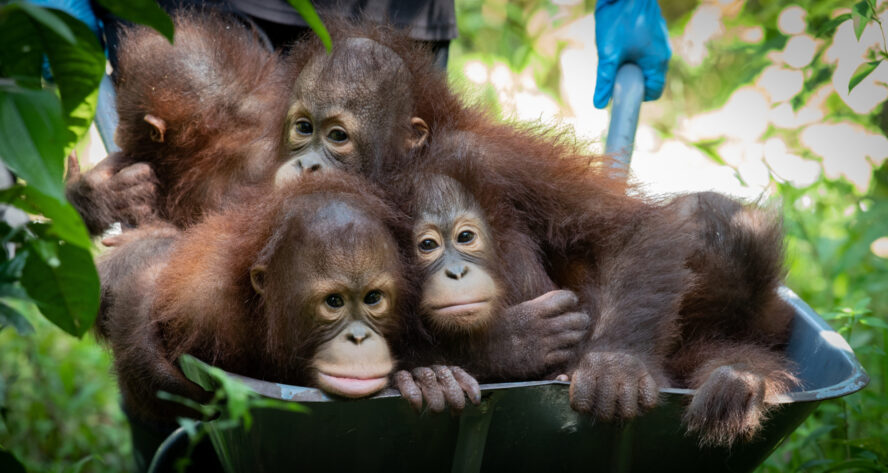Resources
Research roundup ⭐
Staying up to date on the latest research and ongoing efforts to protect and preserve the orangutan and its habitat. New resources will be added to this page regularly.
Research
Orangutans take ‘power naps’ to make up for lost sleep
A 14-year study has found that orangutans take naps to catch up on disrupted sleep. When conditions such as cooler temperatures, rain, long-distance travel or social interactions interfere with their rest at night, they make up for it with extra naps during the day. Just like humans, taking a short rest helps them stay alert for foraging, climbing and even using tools. Orangutans often build simple day-nests to snooze in, highlighting how important rest is to their well-being. By understanding these natural habits, we can better protect their health and the forest homes they rely on.
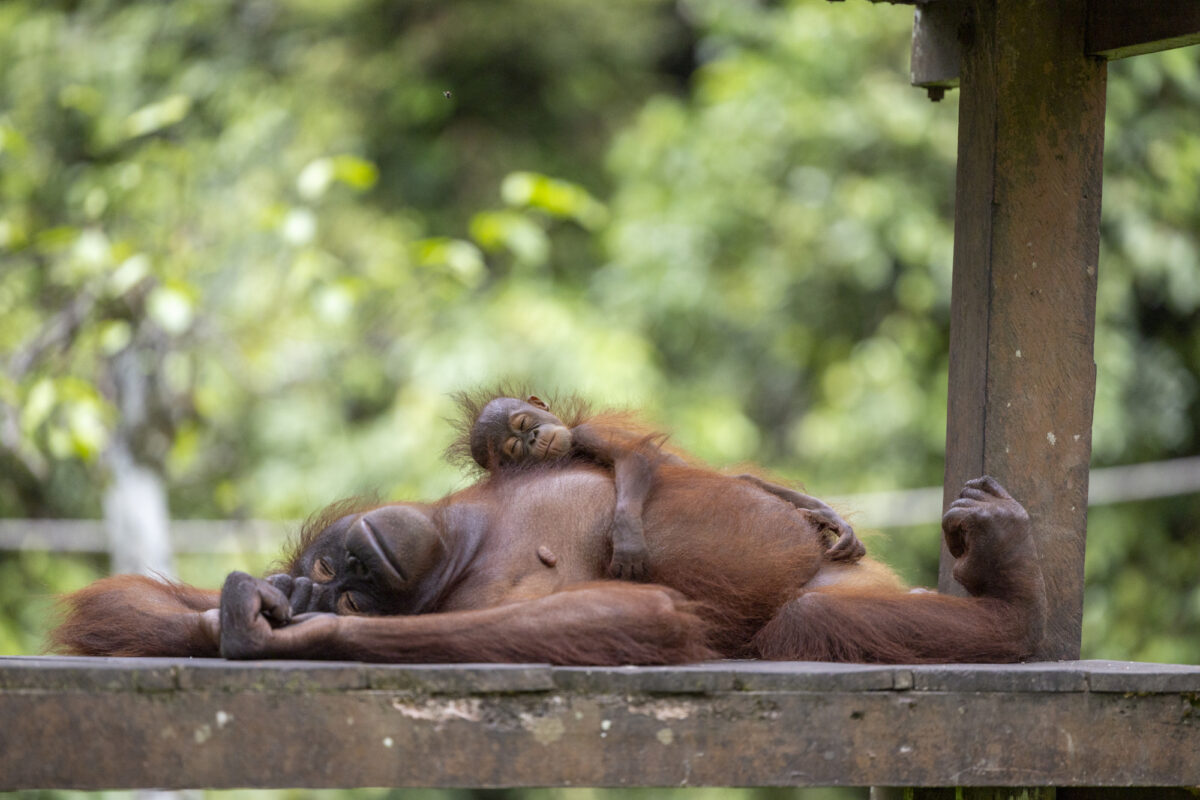
Book
Orangutans: Their History, Natural History and Conservation
This beautifully illustrated book takes readers on a journey through the world of orangutans - from their ancient origins and cultural importance to their complex behaviour and the conservation challenges they face today. Ronald Orenstein weaves together science and history to offer a deeper understanding of these remarkable great apes and the threats to their survival.
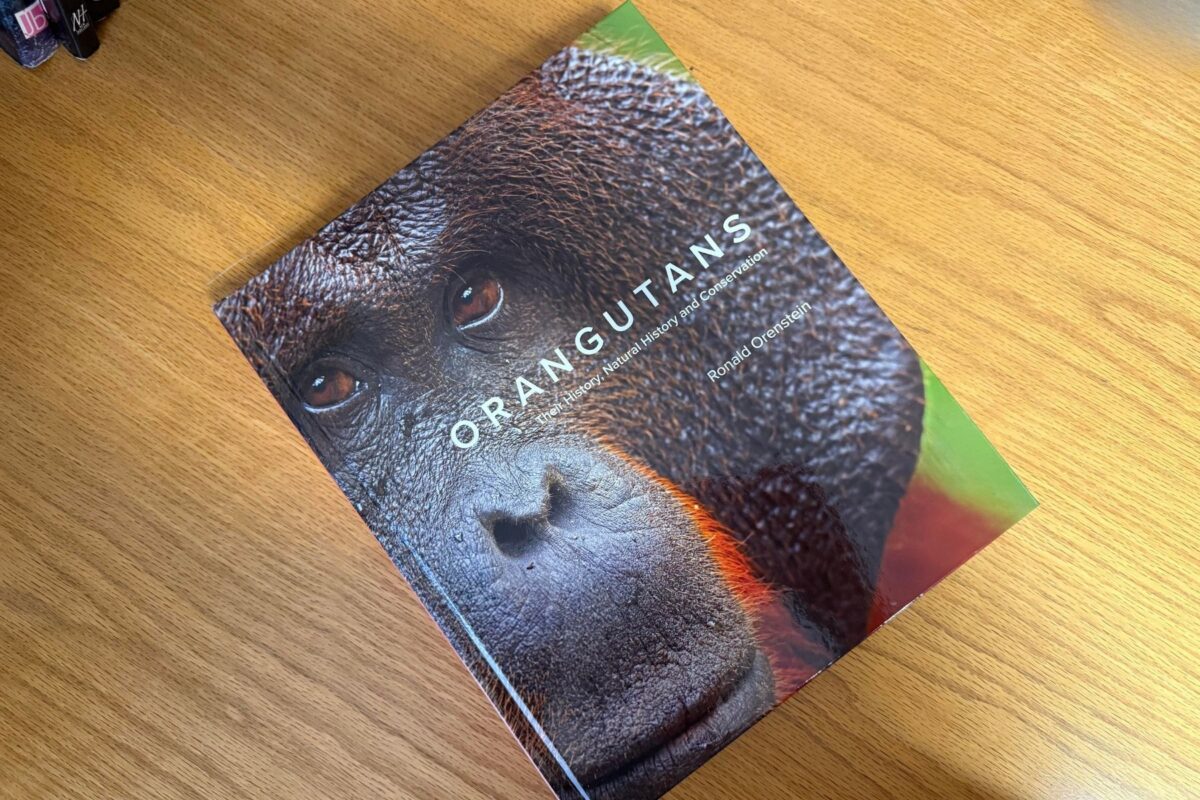
Research
Orangutans produce varied ‘laugh faces’ in response to social partner
By observing pairs of orangutans during playful interactions, researchers discovered that their ‘laugh faces’, such as exposing upper teeth and pulling mouth corners, were influenced by the age and sex of their playmates. Orangutans were more likely to show their upper teeth when interacting with younger or female partners, possibly as a way of signalling non-hostility and encouraging play. These findings suggest that the ability of humans to adapt their ‘laugh faces’ to different social situations may have evolved from similar behaviours seen in great apes, including orangutans.

Research
Do orangutans respond differently to male and female humans?
A recent study has explored whether orangutans perceive and respond differently to male and female humans. This research is important because, although most wild orangutans will never encounter humans, those in captive or semi-wild environments do interact with humans regularly. The study suggests that orangutans might have different reactions based on the gender of the human involved. For example, they may feel more comfortable with one gender over the other, or their behaviour might change depending on whether they interact with a male or female caregiver. Understanding these subtle dynamics can help us develop better strategies for supporting orangutan wellbeing at Sepilok.

Research
Orangutan teeth can teach us about climate change
When animals drink water, the oxygen composition of their tooth enamel changes depending on environmental conditions like temperature and rainfall. As a result, well-preserved teeth fossils can reveal climate records from millions of years ago and provide insights into the environments that early humans would have encountered in Southeast Asia before human-induced climate change.

News
Orangutans use natures remedies to self-medicate
Surrounded by a diverse range of luscious flora, the orangutans in the Sepilok-Kabili Reserve have access to a vast variety of plants which our team have observed them eating, sleeping on, using as tools and even to heal! Research documenting the use of natural remedies to self-medicate in wild orangutans was published in 2008 and 2017 but this behaviour had not been recorded on film until recently, when a wild Sumatran orangutan called Rakus was filmed chewing leaves and applying the residue to a wound on his face. The plant used, a species of Liana, is known to have healing properties that reduce pain, swelling and the risk of infection. This is the first documented case of active wound treatment by a wild animal and will provide new insights into the origins of our own wound care.
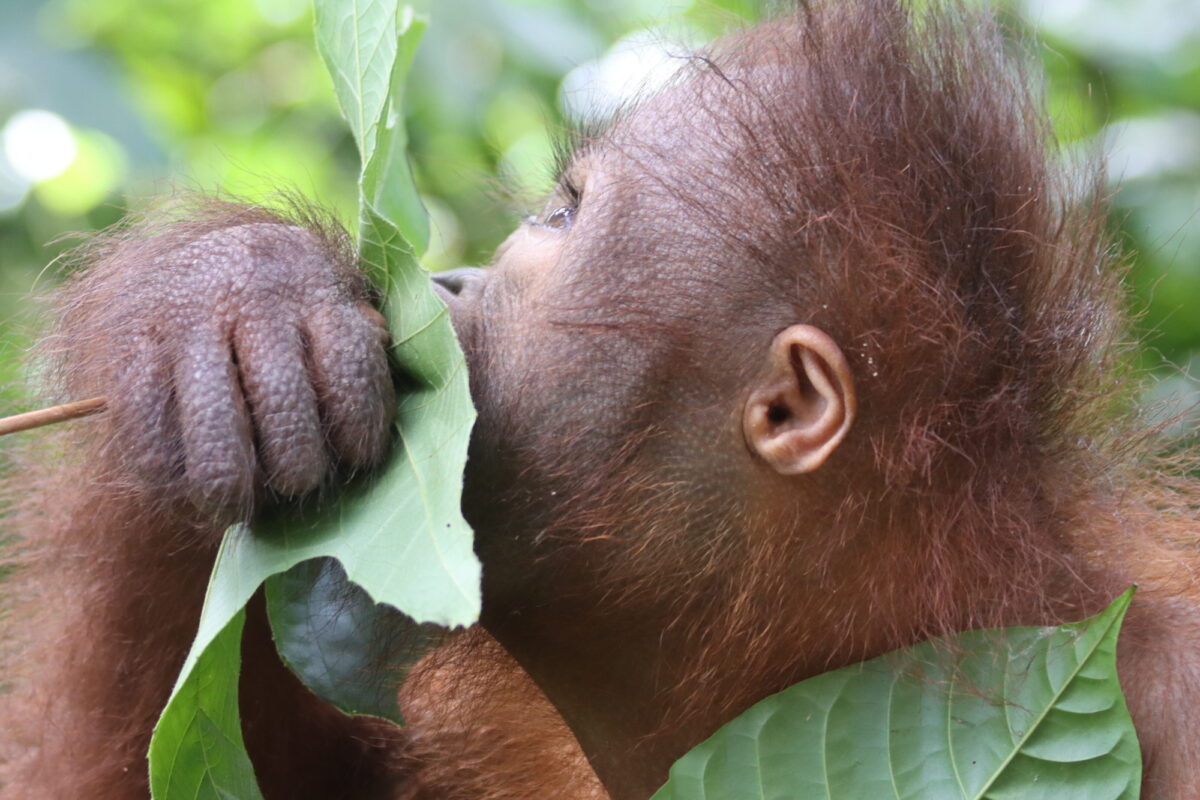
Research
Post-release monitoring
This is the result of one of our most successful projects to date - The Post-Release Monitoring Project. Led by primatologist James Robins, this research investigates the efficacy of implanted radio telemetry as a tool for improving the success of orangutan reintroduction by providing better data on post-release survival and adaptation.

Article
Apes & Agriculture
This review paper looks at the effects of monoculture (the practice of growing one crop species in a field at a time) on endangered and critically endangered great apes and the things that need to change if we want to save these incredible species from extinction. Published in Frontiers in Conservation Science by Erik Meijaard et al, 2023

Book
An Illustrated Guide to Bornean Orangutan Food Plants
This guide outlines more than 100 kinds of native Bornean plant types whose fruits, leaves or bark are commonly eaten by wild orangutans. It offers an in-depth, illustrated look into many Ficus species and highlights their importance to Bornean biodiversity. By John Payne & Zainal Zahari Zainuddin in conjunction with Bringing Back Our Rare Animals (BORA)

Explore more articles
![Malim]()
Resources
Orangutans and the rainforest
Every orangutan is a precious guardian of the rainforest. By protecting them, we ensure future generations inherit a thriving home.
![Orangutan eyes close up]()
Resources
Why orangutans need our help
Bornean orangutans are critically endangered, facing multiple threats in the wild.
![Home page wheelbarrow]()
Resources
Five ways you can help orangutans
By making small changes you can have a big impact on orangutan conservation!
